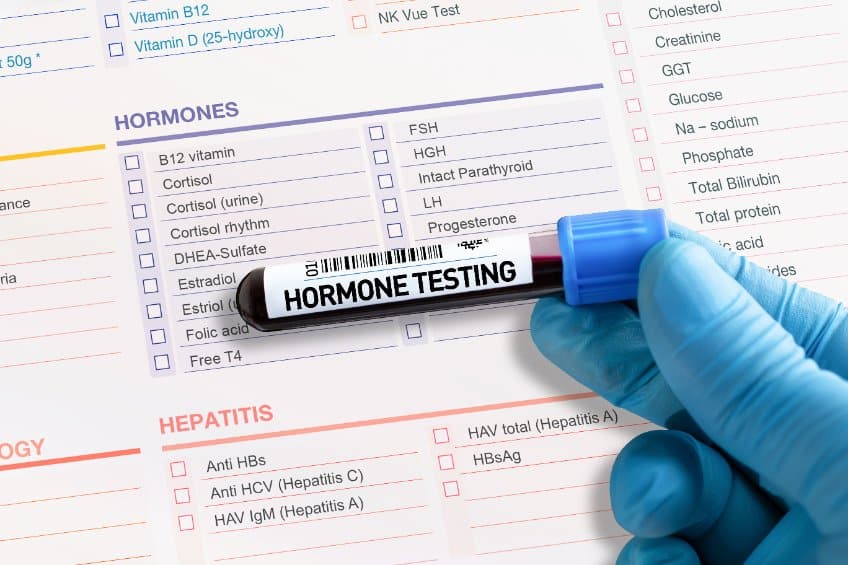The Importance of Hormone Tests: Why It Matters for Your Health and Well-being
Unlocking the secrets of your body’s intricate systems is like embarking on a thrilling adventure. And when it comes to understanding your health and well-being, one vital aspect that should never be overlooked is Hormone Tests. These tiny chemical messengers play a monumental role in regulating various bodily functions, from metabolism and mood to reproduction and sleep patterns. Maintaining hormonal balance is crucial for overall wellness, but what happens when these delicate systems go awry? That’s where hormone testing becomes an invaluable tool.
In this blog post, we’ll delve into the fascinating world of hormones – what they are, how they impact our health, and why hormone testing matters. We’ll explore different types of tests available for comprehensive assessment and discuss who can benefit from these evaluations. Furthermore, we’ll address cost considerations, interpretation of test results, potential treatments for imbalances, as well as provide resources and support for those seeking answers.
Understanding Hormones and Their Role in the Body
Hormones are the body’s chemical messengers, orchestrating a symphony of vital functions. They regulate everything from metabolism and growth to mood and reproduction. Without hormones, our bodies would be chaotic and unbalanced. These powerful substances are produced by various glands throughout the body, such as the thyroid, adrenal, and pituitary glands. Each hormone serves a specific purpose in maintaining equilibrium within our intricate systems.
By binding to target cells or organs through the bloodstream, hormones can exert their effects on numerous physiological processes. They act as signals that tell different parts of the body what to do – like a conductor guiding an orchestra. Whether it’s controlling appetite or influencing sleep patterns, hormones play an integral role in overall health and well-being.
What Are Hormones?
Hormones play a vital role in our overall health and well-being. But what exactly are hormones? Simply put, hormones are chemical messengers that are produced by various glands in our bodies. They travel through the bloodstream to different tissues and organs, where they help regulate essential processes like metabolism, growth, reproduction, mood, and more.
These powerful substances act as the body’s internal communication system, transmitting important signals between cells and organs. Hormones can have a profound impact on everything from our energy levels to our emotions. They work together in a delicately balanced symphony to ensure that all systems within our bodies function properly. Without these intricate hormonal interactions taking place every second of every day, we would not be able to maintain optimal health and well-being.
The Role of Hormones in Health and Well-being
Hormones play a vital role in maintaining our overall health and well-being. These chemical messengers are produced by various glands in the body, such as the pituitary gland, thyroid gland, adrenal glands, and ovaries or testes. They travel through the bloodstream to target cells or organs and regulate essential functions like metabolism, growth, reproduction, mood regulation, and stress response.
Proper hormone balance is crucial for optimal health. When hormones are balanced, we experience increased energy levels, improved mood stability, better sleep quality, healthy weight management, and enhanced cognitive function. On the other hand,
hormone imbalances can lead to a range of symptoms including fatigue,
weight gain or loss difficulty concentrating anxiety depression irritability insomnia changes in appetite decreased libido hair loss acne hot flashes night sweats irregular periods infertility decreased muscle mass bone density loss
Hormone Imbalances and Their Impact on Health
Hormones play a crucial role in maintaining our overall health and well-being. However, when there is an imbalance in hormone levels, it can have a significant impact on our bodies. Hormone imbalances can occur due to various factors such as stress, aging, certain medical conditions, or even lifestyle choices.
These imbalances can lead to a range of symptoms and health issues. For instance, women may experience irregular menstrual cycles or fertility problems due to hormonal fluctuations. Both men and women may suffer from mood swings, fatigue, weight gain or loss, sleep disturbances, decreased libido, hair loss or growth abnormalities – all of which can greatly affect their quality of life. It’s important to recognize these symptoms and consider hormone testing as a means to identify any underlying imbalances that need attention.
Types of Hormone Tests for Comprehensive Assessment
When it comes to assessing hormone levels in the body, there are several types of tests that can provide a comprehensive picture. One common method is blood tests, which measure hormone levels by analyzing a sample taken from a vein. Blood tests are often used to assess hormones like thyroid-stimulating hormone (TSH), cortisol, estrogen, progesterone, and testosterone.
Another type of test is saliva testing. This involves collecting a small amount of saliva and sending it to a laboratory for analysis. Saliva tests can provide valuable information about hormone levels throughout the day as they reflect the active or free hormones circulating in the body. They are commonly used for measuring cortisol and sex hormones like estrogen and testosterone.
Urine testing is another option for evaluating hormone levels. This type of test measures metabolites or breakdown products of hormones that are excreted in urine. It can provide insights into hormonal imbalances and help identify specific issues such as adrenal dysfunction or estrogen metabolism problems.
Having different types of hormone tests allows healthcare professionals to get a more complete understanding of an individual’s hormonal health status. By combining these assessments, they can make more accurate diagnoses and develop targeted treatment plans tailored to each person’s unique needs.
Blood Tests for Hormone Levels
When it comes to assessing hormone levels in the body, one of the most common methods is through blood tests. These tests involve drawing a small amount of blood and analyzing it for various hormones. Blood tests can provide valuable insights into hormone imbalances and help healthcare professionals determine the appropriate course of action.
During a blood test, a healthcare professional will typically draw blood from a vein in your arm using a needle. The sample is then sent to a laboratory where it is analyzed for different hormones such as estrogen, testosterone, cortisol, thyroid-stimulating hormone (TSH), and more. These tests are often used to diagnose conditions like hypothyroidism or hyperthyroidism, evaluate fertility issues, assess adrenal function, or monitor hormone replacement therapy effectiveness.
Blood tests offer several advantages when it comes to evaluating hormone levels. They are widely available and can be performed at most medical facilities or laboratories. Additionally, these tests provide accurate measurements of specific hormones circulating in your bloodstream at that moment. This information allows healthcare professionals to make informed decisions about potential treatments or interventions based on your individual needs.
Saliva Tests for Hormone Levels
Another type of hormone test that is commonly used is the saliva test. This non-invasive method involves collecting a sample of saliva to measure hormone levels.
Saliva tests are often preferred by individuals who find blood tests uncomfortable or inconvenient. They can provide valuable insights into hormone imbalances and help healthcare professionals determine the appropriate course of treatment. Saliva tests are also useful for monitoring hormone levels over time, allowing for adjustments in treatment as needed.
With advancements in technology, saliva testing has become more accurate and accessible than ever before. Many reputable laboratories and providers offer at-home saliva test kits that make it convenient to collect samples from the comfort of your own home. So if you’re considering getting your hormones tested, a saliva test may be a great option for you!
Urine Tests for Hormone Levels
One of the types of hormone tests that healthcare professionals may recommend is a urine test. This non-invasive and simple method involves collecting a small sample of urine to analyze hormone levels in the body.
Urine tests can provide valuable information about hormone imbalances, as they measure the metabolites or breakdown products of hormones excreted in the urine. These tests can assess various hormones, including cortisol, estrogen, testosterone, and thyroid hormones. By analyzing these levels, healthcare providers can gain insights into an individual’s hormonal health and identify any imbalances that may be affecting their well-being. So if you’re experiencing symptoms or suspect you have a hormonal issue, don’t overlook the importance of urine tests in understanding your overall health!
Who Should Consider Hormone Testing?
Are you feeling off-balance lately? Experiencing unexplained mood swings, fatigue, or weight gain? It might be worth considering hormone testing. Hormone imbalances can wreak havoc on your physical and emotional well-being, leaving you feeling drained and frustrated. If you’re experiencing symptoms like irregular periods, hot flashes, or low libido, getting a hormone test could provide valuable insights into the underlying causes of these issues.
Hormones play a crucial role in various health conditions such as infertility, thyroid disorders, and diabetes. If you have been diagnosed with any of these conditions or are struggling to manage their symptoms effectively despite treatment, hormone testing may help identify the root cause. By measuring hormone levels in your body accurately through tests tailored to your specific condition, healthcare professionals can develop targeted treatment plans that address the underlying hormonal imbalances contributing to your health concerns. Don’t suffer in silence – consider exploring the benefits of hormone testing today!
Individuals Experiencing Symptoms of Hormone Imbalance
If you’ve been feeling off lately, it could be a sign that something is not quite right with your hormones. Hormone imbalances can manifest in various ways and affect both men and women. Common symptoms include fatigue, mood swings, weight gain or loss, low libido, hair loss, irregular periods, hot flashes, and trouble sleeping.
Experiencing these symptoms can be frustrating and impact your overall quality of life. It’s important to pay attention to what your body is telling you and consider hormone testing as a way to get answers. By identifying any imbalances in hormone levels through testing, you can work towards restoring balance and improving your health and well-being.
Remember to consult with a healthcare professional who specializes in hormonal health before making any treatment decisions based on test results. They will help interpret the results accurately and recommend appropriate interventions such as lifestyle changes or hormone replacement therapy if necessary. Taking proactive steps towards addressing hormone imbalances can lead to better physical and emotional health!
Individuals with Specific Health Concerns or Conditions
For those who have specific health concerns or conditions, hormone testing can be particularly important. Certain medical conditions such as polycystic ovary syndrome (PCOS), thyroid disorders, and diabetes can all be influenced by hormonal imbalances. By undergoing hormone tests, individuals with these conditions can gain valuable insights into their hormone levels and potentially uncover underlying factors contributing to their symptoms.
Hormone testing can also be beneficial for individuals who are undergoing fertility treatments or experiencing difficulties in conceiving. Imbalances in reproductive hormones such as estrogen and progesterone can significantly impact a person’s ability to conceive. By identifying any imbalances through comprehensive hormone testing, healthcare professionals can develop targeted treatment plans tailored to address the specific needs of each individual.
Cost Considerations and Accessibility of Hormone Testing
Understanding the costs associated with hormone testing is an important consideration for individuals who are seeking to assess their hormone levels. While the cost of hormone tests can vary depending on the type of test and location, it is essential to evaluate how accessible these tests are in terms of affordability and availability.
When it comes to assessing hormone levels, there are different options available ranging from blood tests to saliva or urine tests. The cost of these tests may vary based on factors such as the specific hormones being tested and whether they are included in a comprehensive panel. Additionally, geographic location can also impact pricing, with costs potentially varying between healthcare providers or laboratories.
It’s worth noting that insurance coverage for hormone testing varies among different insurance plans. Some plans may cover all or part of the cost while others may require out-of-pocket payment. Understanding your insurance coverage is crucial when considering hormone testing as it can significantly impact accessibility and affordability.
Considering both cost implications and accessibility when deciding whether to pursue hormone testing is essential. By understanding potential expenses related to specific types of tests and investigating insurance coverage options, individuals can make informed decisions about their health without financial burden. Additionally, exploring various avenues for obtaining hormonal assessments ensures greater access regardless of geographical limitations or healthcare provider availability.
Understanding the Costs of Hormone Testing
One important consideration when it comes to hormone testing is the cost involved. It’s essential to have an understanding of what you can expect in terms of expenses before undergoing these tests. The cost of hormone testing can vary depending on factors such as the type of test, where it is conducted, and whether or not insurance coverage is available.
Different types of hormone tests may have different price points. For example, blood tests for hormone levels are typically more affordable compared to saliva or urine tests. Additionally, the total cost will also depend on how comprehensive the assessment needs to be and if additional panels or specialized testing are required. It’s crucial to discuss pricing options with your healthcare provider or testing facility beforehand so that you have a clear idea of what costs you can anticipate.
Insurance coverage for hormone testing varies among providers and policies. Some health insurance plans may cover part or all of the costs associated with hormonal testing, especially if it is deemed medically necessary by your healthcare provider. However, it’s essential to verify this information with your insurance company before scheduling any tests to avoid unexpected out-of-pocket expenses.
In addition to costs, accessibility is another factor worth considering. Availability and proximity of laboratories that offer hormone testing can play a role in determining convenience and ease in accessing these services. While some individuals may have local labs readily available, others may need to travel further distances for specialized centers that provide comprehensive hormonal assessments.
Insurance Coverage for Hormone Testing
Understanding the costs of hormone testing is an important consideration for many individuals. Fortunately, insurance coverage can help alleviate some of the financial burden associated with these tests.
Many health insurance plans provide coverage for hormone testing, especially when it is deemed medically necessary by a healthcare professional. However, it’s essential to review your specific policy and understand what types of tests are covered and any potential limitations or requirements. Some insurers may require pre-authorization or documentation from your doctor to approve coverage for hormone testing. It’s always recommended to reach out to your insurance provider directly to get detailed information about your coverage options.
Having insurance coverage can make hormone testing more accessible and affordable for many people. Don’t hesitate to explore this option if you’re considering getting tested for hormone imbalances or related health concerns. Remember, understanding your insurance benefits and working closely with healthcare professionals will ensure that you have the support needed throughout this process.
Availability and Accessibility of Hormone Tests
Understanding the availability and accessibility of hormone tests is crucial for individuals seeking to assess their hormonal health. These tests are widely available, making it easier than ever to get a comprehensive assessment of your hormone levels. Whether you prefer traditional healthcare settings or online platforms, there are various options for accessing hormone testing.
In traditional healthcare settings, hormone tests can typically be done through blood work ordered by your primary care physician or specialist. These tests may be performed at a lab facility affiliated with your healthcare provider or at a local hospital. Additionally, many clinics now offer on-site hormone testing services for added convenience. For those who prefer more flexibility and privacy, online platforms have emerged that allow individuals to order home-based hormone test kits that can be completed in the comfort of their own homes and then sent back to specialized laboratories for analysis. This option provides accessibility regardless of geographical location and eliminates the need for in-person appointments or visits to medical facilities
Interpreting and Acting on Hormone Test Results
Understanding Hormone Test Results
Once you’ve undergone hormone testing and received the results, it’s important to know how to interpret them. While healthcare professionals are best equipped to analyze your specific test results, having a basic understanding can help you navigate the next steps in addressing any hormone imbalances.
Interpreting hormone test results involves looking at the levels of various hormones in your body and comparing them to normal ranges. Depending on the specific hormone being tested, higher or lower levels may indicate an imbalance. It’s crucial to remember that interpreting these results requires expertise, as hormonal systems are complex and interconnected. By working closely with your healthcare provider, they can provide insight into what your test results mean for your health and well-being.
Taking Action Based on Test Results
Once you have a clear understanding of your hormone test results, it’s time to take action. Your healthcare provider will work with you to develop a personalized treatment plan tailored to address any identified imbalances.
Treatment options for hormone imbalances can vary depending on the underlying cause and severity of symptoms. They may include lifestyle changes such as dietary adjustments or exercise routines, supplementation with certain hormones if necessary, or other interventions like medication or therapy.
Remember that acting upon hormone test results is not something you need to tackle alone – always consult with qualified healthcare professionals who specialize in hormonal health. Together, you can create a comprehensive approach that addresses both immediate concerns and long-term goals for optimizing your overall health and well-being.
Understanding Hormone Test Results
When you receive the results of your hormone tests, it’s important to have a clear understanding of what they mean. The numbers and values on the test report may seem confusing at first, but with some guidance, you can gain valuable insights into your hormonal health.
It’s important to note that hormone levels can vary based on factors such as age, gender, and individual differences. Your healthcare provider or endocrinologist will be able to interpret the results in relation to these factors. They will explain what each hormone level means for your overall health and well-being.
Keep in mind that interpreting hormone test results is not a one-size-fits-all approach. It requires careful consideration of multiple factors and an understanding of how different hormones interact within the body. So don’t hesitate to ask questions or seek clarification if something isn’t clear.
By working closely with your healthcare professional, you can develop a plan tailored specifically to address any imbalances or deficiencies identified by the tests. This may involve lifestyle changes, dietary modifications, medication adjustments, or other interventions designed to restore balance in your hormonal system.
Working with Healthcare Professionals to Address Hormone Imbalances
Once you’ve undergone hormone testing and received your results, it’s important to work closely with healthcare professionals to interpret and address any imbalances. While it may be tempting to try self-diagnosing or self-treating based on online information, it’s crucial to consult with a qualified healthcare provider who can provide personalized guidance.
Your healthcare professional will help you understand the meaning of your hormone test results in relation to your symptoms and overall health. They will take into account factors such as age, gender, medical history, and lifestyle habits to develop an appropriate treatment plan tailored specifically for you. This may involve lifestyle changes, dietary adjustments, supplements or medications, and potentially other interventions if necessary.
Addressing hormone imbalances requires careful monitoring and adjustment over time. Working hand-in-hand with a knowledgeable healthcare professional ensures that you receive the most effective treatments for restoring hormonal balance and improving your overall well-being. So don’t hesitate to reach out for expert guidance – together, you can pave the way toward better hormonal health!
Potential Treatments and Interventions for Hormone Imbalances
Once you have received the results of your hormone tests, it is important to work closely with healthcare professionals to interpret and understand what they mean for your health. Depending on the specific hormone imbalances identified, there are several potential treatments and interventions that may be recommended.
In some cases, lifestyle modifications such as dietary changes, exercise routines, stress reduction techniques, and adequate sleep can help regulate hormone levels naturally. For others, medications or hormone replacement therapy (HRT) may be suggested to restore balance. It is crucial to follow medical advice and guidance when considering any treatment options for hormone imbalances to ensure safety and effectiveness.
That every individual’s situation is unique, so what works for one person may not necessarily work for another. Your healthcare provider will tailor a treatment plan based on your specific needs and goals. By taking proactive steps towards addressing hormonal imbalances through appropriate treatments and interventions, you can improve your overall well-being and quality of life.
Resources and Support for Hormone Testing
Finding reliable resources and support when it comes to hormone testing is essential for informed decision-making and effective management of hormonal health. Reputable testing laboratories and providers can offer accurate results, ensuring you have the necessary information to address any potential imbalances. Additionally, online resources provide valuable information on hormone testing procedures, interpretation of results, and available treatment options.
When searching for a reputable laboratory or provider, look for those with a proven track record in hormone testing. Reading reviews or seeking recommendations from trusted healthcare professionals can help guide your decision. Online resources such as medical websites or health forums can offer valuable insights into different types of tests, their benefits, and potential limitations.
Moreover, joining support communities dedicated to individuals dealing with hormone imbalances can provide emotional support and a sense of belonging. Engaging with others who understand what you’re going through can be empowering as you navigate the complexities of hormone testing and its impact on your well-being.
Reputable Testing Laboratories and Providers
When it comes to hormone testing, choosing a reputable testing laboratory or provider is crucial. You want to ensure that you are getting accurate and reliable results that can guide your healthcare decisions. So, where can you find these trustworthy options?
Do your research and look for laboratories or providers that specialize in hormone testing. Look for those with certifications and accreditations from reputable organizations. Reading reviews and testimonials from other patients can also give you insights into the quality of service provided.
In addition, consider seeking recommendations from your healthcare provider or trusted friends who have undergone hormone testing themselves. They may be able to point you in the direction of a reliable laboratory or provider that they have had positive experiences with. Don’t be afraid to ask questions and gather as much information as possible before making your decision!
Online Resources and Information on Hormone Testing
When it comes to hormone testing, having access to reliable information and resources is crucial. Luckily, the internet has made it easier than ever before to find valuable resources on hormone testing. Online platforms provide a wealth of information about different types of tests, their benefits, and what individuals can expect during the process.
Many reputable healthcare websites offer detailed articles and guides on hormone testing. These online resources explain the importance of hormone balance for overall health and well-being. They also outline the various types of tests available, helping individuals understand which method might be most suitable for their needs.
Additionally, there are numerous forums and discussion boards where people share their personal experiences with hormone testing. These platforms can provide insights into what others have gone through during the testing process and how they addressed any imbalances that were detected.
Online resources play a vital role in educating individuals about hormone testing options and providing support throughout their journey towards hormonal health. Whether you’re looking for basic information or seeking advice from others who have undergone similar experiences, these digital platforms are valuable tools in your pursuit of optimal well-being.
Support and Communities for Individuals Dealing with Hormone Imbalances
Dealing with hormone imbalances can be a challenging and overwhelming experience, but you don’t have to face it alone. There are supportive communities and resources available that can provide guidance, understanding, and a sense of belonging for individuals going through similar struggles.
Online platforms offer a wealth of information on hormone imbalances and connect you with others who share your experiences. Forums, chat groups, and social media communities allow you to interact with like-minded individuals. Who understand the physical and emotional challenges that come with hormonal issues. These spaces provide a safe environment to ask questions, seek advice, share stories. Or simply find solace in knowing that you’re not alone in your journey.
It’s important to remember that seeking support is not a sign of weakness; rather, it shows strength in acknowledging your needs and reaching out for help. Connecting with others who have faced or are facing similar challenges can provide valuable insights into coping strategies. Treatment options, and lifestyle adjustments that may work for you. The power of community lies in its ability to offer empathy, encouragement, validation. All essential components when navigating the complexities of hormone imbalances. So take advantage of these support networks as they could make all the difference on your path towards optimal health and well-being!
Frequently Asked Questions about Hormone Testin
1. How often should I get hormone testing done?
The frequency of hormone testing will vary depending on individual circumstances. It is best to consult with your healthcare provider to determine. How often you should undergo hormone testing based on your specific needs and concerns.
2. Are there any risks or side effects associated with hormone testing?
Hormone testing is generally considered safe and non-invasive. However, as with any medical test, there may be minimal risks such as bruising or discomfort at the site where blood is drawn. These risks are usually minor and temporary.
3. Can I interpret my own hormone test results?
While it can be tempting to try interpreting your own results, it is crucial to consult a healthcare professional who specializes in hormonal health for an accurate interpretation. They will consider various factors such as your symptoms. Medical history, and other lab test results before providing a comprehensive analysis.
4. What treatments are available for hormone imbalances?
Treatment options for hormone imbalances can range from lifestyle modifications such as changes in diet and exercise routines to medication or hormonal therapy prescribed by a healthcare professional. The appropriate treatment plan will depend on the specific imbalance identified through testing.
5. How long does it take to see improvements after addressing a hormonal imbalance?
The timeframe for seeing improvements varies depending on the individual’s unique situation and the severity of their hormonal imbalance. Some individuals may experience relief within weeks while others may require longer-term management strategies before noticing significant improvements.







